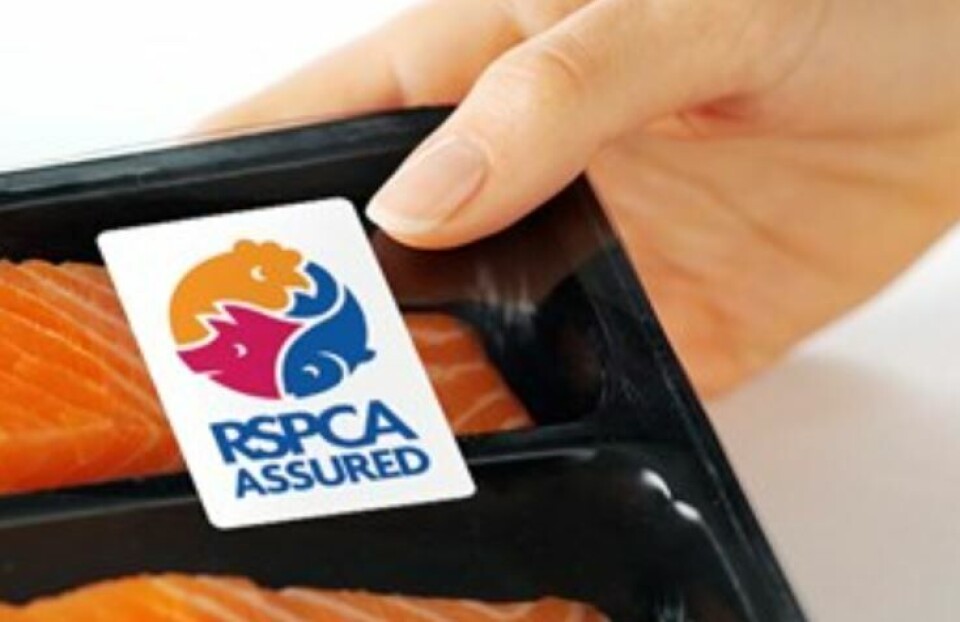
Salmon sites cleared of alleged welfare breaches
Five Scottish salmon farms have had their RSPCA Assured certification reinstated after inspections found no evidence to support claims made by Compassion in World Farming (CIWF) and anti-fish farm activists about poor welfare.
Tavish Scott, chief executive of the Scottish Salmon Producers’ Organisation (SSPO), said: “Each of the Scottish salmon farms subjected to unfounded allegations of welfare breaches by the campaigning group CIWF have been thoroughly investigated and given unequivocal bills of clean health.
“All sites were physically visited and inspected by RSPCA Assured auditors, in addition to extensive reviews of the information initially received.
“No evidence was found to support the claims made by anti-fish farm activists and RSPCA Assured certification for the sites has been reinstated with immediate effect.”
‘Exemplary standards’
Scott added: “Our farmers maintain exemplary standards of fish health and welfare which is why we were adamant that there was no substance to any of these distorted and exaggerated claims. We respect the role that RSCPA Assured plays in keeping our standards high with their unannounced inspections, with auditors welcome on any farm, at any time.”
CIWF’s emotively written 44-page report alleged the industry is “rife with welfare issues” and demanded an immediate moratorium on salmon farming expansion.
The report included a photo of a salmon with a missing eye, another with lice damage and several sea lice attached to its head and another with a large, exposed wound on its back, all taken by a team of undercover investigators hired by CIWF to carry out an investigation between September and November last year. The cover of the report features a drawing of a salmon with a combination of all these injuries.
Shocked and upset
“We were really shocked and upset by some of this footage taken last year, especially as some of the farms were reported to be RSPCA Assured certified.
“We immediately launched an investigation, as soon as we received details of the farms on 23 March 2021, and suspended those sites in the video that were members of RSPCA Assured, pending investigation.
“'We always ask anyone with concerns about animal welfare to report those to us as soon as possible and several months have passed since this footage was shot. Following a thorough investigation, which included visits to the farms by specially trained staff, we were unable to find any evidence to support the issues seen in the footage taken last year. As such, we have today lifted their suspension from RSPCA Assured.
“Any complaints of poor welfare, or breaches of the RSPCA Assured membership agreement, are not tolerated and we always take them very seriously. We would always urge anyone with any concerns about an animal to contact us straight away, without delay. This is so that we can immediately investigate, visit the farm and address any welfare issues as a priority.”
‘Wrong and misleading’
When the report was published, SSPO chief executive Scott said key elements were “wrong, inaccurate and misleading - claims we would have pointed out to CIWF, had they approached anybody in the Scottish salmon farming sector before publishing it”.
Ronnie Soutar, head of veterinary services at Scotland’s third-largest salmon farmer, Scottish Sea Farms, and a long-standing fish vet, said at the time: “By selectively publicising those very few pictures, CIWF are being hugely misleading. Those pictures do not reflect my experience of the extraordinarily high standards Scotland’s fish farmers are setting.”
The CIWF report, which was funded Facebook billionaire Dustin Moskovitz’s US-based Open Philanthropy Project, made a number of allegations, including that as of October last year a landfill site in Scotland was being illegally used to bury dead fish. However, the majority of its content was simply a repetition of accusations made by opponents of the industry.
CIWF claimed that sea lice are out of control and quoted selected figures from Salmon and Trout Conservation Scotland, the angling body most hostile to salmon farming.
It also quoted discredited 16-year-old research from Canada that sea lice infection rates around fish farms were 73 times higher than in areas without fish farms.























































